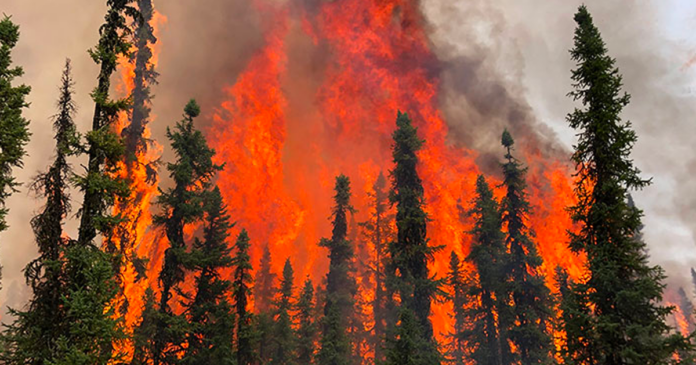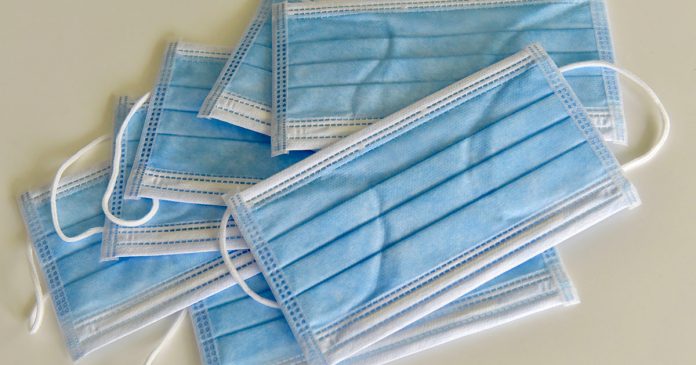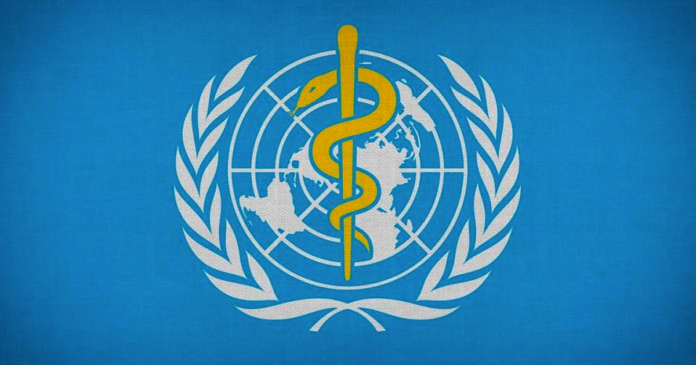The Bank of Canada (BoC) hiked its Overnight Lending Rate by a quarter point to 4.75%—a 22-year high—Wednesday in the latest indication that it may not be able to wrest inflation under control.
However, the federal government’s extravagant spending over the last few years—particularly its pandemic-induced income subsidies—is likely to blame.
“The level of government spending is one of the drivers for inflation,” Christopher Taylor, a treasury finance executive and market analyst, told True North. “None of the policies tie together. It almost feels like there’s a lot of short-term thinking.”
“There isn’t a good discussion between what’s going on between fiscal and monetary perspectives, because they’re working against each other, and the outcomes for the average Canadian aren’t going to be great for the next six to nine month.”
Taylor is alluding to the fact that there’s too much money in circulation right now, much of which is bolstering Canadians’ saving and being dispersed among investments like real estate, stocks and bonds, while the central bank has initiated a quantitative tightening program.
“I don’t want to sound too critical of central banks,” Taylor said. “If you look at the leading indications of inflation, there’s debt growth. Debt has been growing at a rate of change at two or three times of what you normally see.
“When you see industrial commodity prices move up quickly—20, 30, 40% on a year-over-year basis—it means inflation is higher than you’d expect money growing, and excess savings is a leading indicator of inflation.”
Moreover, Canada’s unemployment rate was 5% in April, according to Statistics Canada, unchanged from December and a mere basis point above the 4.9% record low in July.
Taylor suggests low unemployment is the result of the government “pre-funding” a recession, and that, because housing is playing an outsized role in the BoC’s decision-making process, sustained downward pressure on housing activity persists could tamp down inflation, which is currently 4.4%
“I would say the deficits in the first half of the year that the U.S. and Canadian governments have run tend not to be the kinds of deficits that are run outside of recessions,” he said. “When that occurs, central banks will probably have to raise rates higher than expected because fiscal and monetary policies are going in two different directions.”
Laura Scarlett Martin, a 16-year real estate finance veteran and general partner of One Ring Ventures, is more critical of the BoC, though, excoriating Governor Tiff Macklem for “doubling down on his inept handling of the inflationary environment.”
“The bank of Canada failed to consider that the largest inflation pressure to Canadians is the increase in borrowing costs,” she said. “Canadians with variable rate mortgages are seeing their payments go up an average of 40% at renewal, with payment doubling in some cases.”
Martin added Canadians are buckling under the weight of economic pressures and they’re already defaulting on debt payments.
“There are credit card debts and defaults,” she said. “People are losing their shirts. The unemployment numbers are a complete farce. People have more than one job, but many don’t have single well-paying jobs. I can’t believe how many Uber bicyclists there are, for example. It seems like there are more and more.
“I think there will be more credit defaults, people will stop being able to pay minimum monthly payments, incurring more penalties for late fees, and there could possibly be more job layoffs because there’s bloodshed in North America’s tech sector.”
Indeed, despite substantial job growth during the pandemic, the global tech sector is now hampered by layoffs. In Canada, there were 100,000 tech jobs lost during the first six weeks of 2023 alone, following 160,000 last year.
As the BoC continues reining in inflation by hiking interest rates, the tech sector contracting could be a harbinger of what’s to come in other economic sectors.
“A lot of startups live off venture debt investor capital or bank debt, and they can’t pay off debt with rising rates,” Martin said. “They look at how much money they have and whether or not they have an 18- to 24-month runway, so these companies, startups or established, will look at ways of making their operations leaner even because of things like higher energy bills.”
The central bank’s quantitative tightening program will ultimately reduce economic activity in what it hopes is a soft landing recession.
“Due to the Bank of Canada making debt more expensive, [companies] won’t take on more debt to ride this out.” Martin added. “They will cut costs because the larger amount of money they make will go towards paying off debt. Private venture investors will want to hang onto cash and refrain from investing. Everyone is in wait-and-see period.”



























